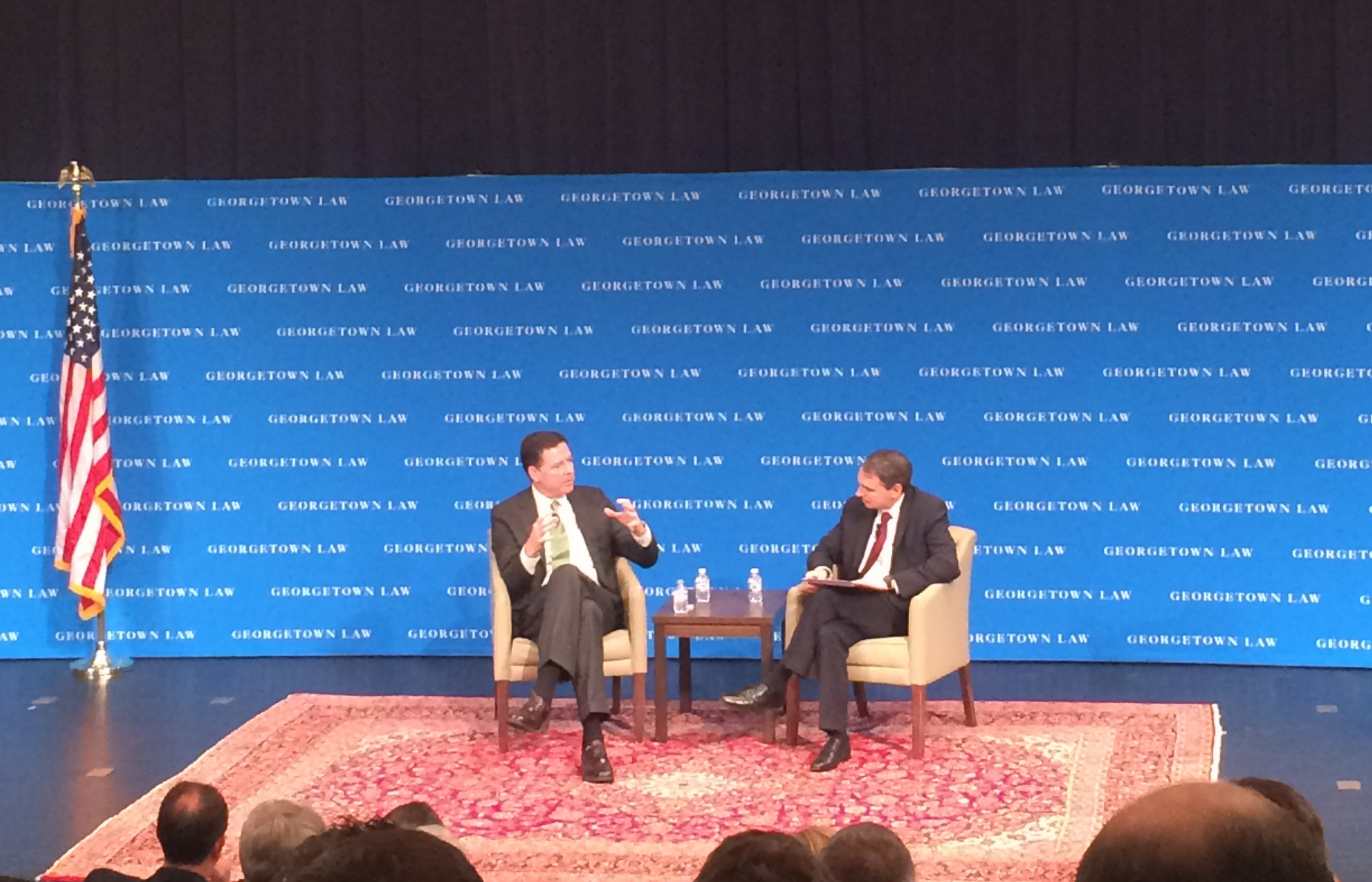
FBI Director James Comey told an audience he thinks the government should have a back door to gain access to secure devices. (Holly LaFon/MEDILL NSJI)
WASHINGTON — FBI Director James Comey on Wednesday criticized tech giants including Apple and Google for opposing so-called “back doors” in security software for government agencies to access encrypted phones, computers, and other devices.
The tech companies along with academic experts and advocacy groups wrote a letter to President Obama on Tuesday opposing statements by administration officials who have come out strongly against more robust encryption on consumer products. In fact, some officials have advocated that tech companies stop selling encrypted products altogether unless the government has a way to decrypt the data.
The letter makes the case that weakening products’ security would only make them more vulnerable to “innumerable criminal and national security threats.”
But Mr. Comey, addressing the Cybersecurity Law Institute at Georgetown University, said the FBI faces increasing difficulty in unlocking encrypted devices – and those who signed the letter were either not being fair-minded or were failing to see the societal costs to universal strong encryption.
“Either one of those things is depressing to me,” he said.
Citizens’ privacy interests and public safety are coming closer to “a full-on collision,” he said. Acknowledging “tremendous societal benefits” to encryption, Comey said the inability of law enforcement officials to gain access to encrypted devices when they have probable cause and strong oversight threatens public safety.
“As all of our lives become digital, the logic of encryption is all of our lives will be covered by strong encryption,” he said. “Therefore all of our lives … including the lives of criminals and terrorists and spies will be in a place that is utterly unavailable to court-ordered process. And that to a democracy should be utterly concerning.”
However, tech companies and encryption advocates argue in the letter that creating back doors would also pose an economic threat to the companies, especially in light of the Edward Snowden leaks.
“US companies are already struggling to maintain international trust in the wake of revelations about the National Security Agency’s surveillance programs. Introducing mandatory vulnerabilities into American products would further push many customers – be they domestic or international, individual or institutional – to turn away from those compromised products and services,” the letter said.
What’s more, critics – including many lawmakers – who oppose efforts to weaken encryption say that creating a system in which government agencies have access to secure data would also create vulnerabilities exploitable by criminal hackers and other governments.
Comey acknowledged the business pressures and competitive issues involved, but urged tech companies to find a safe way to cooperate with government needs to access information.
“Smart people, reasonable people will disagree mightily, technical people will say it’s too hard,” he said. “My reaction to that is, ‘Really? Too hard? Too hard for the people that we have in this country to figure something out?’ I’m not that pessimistic.”






